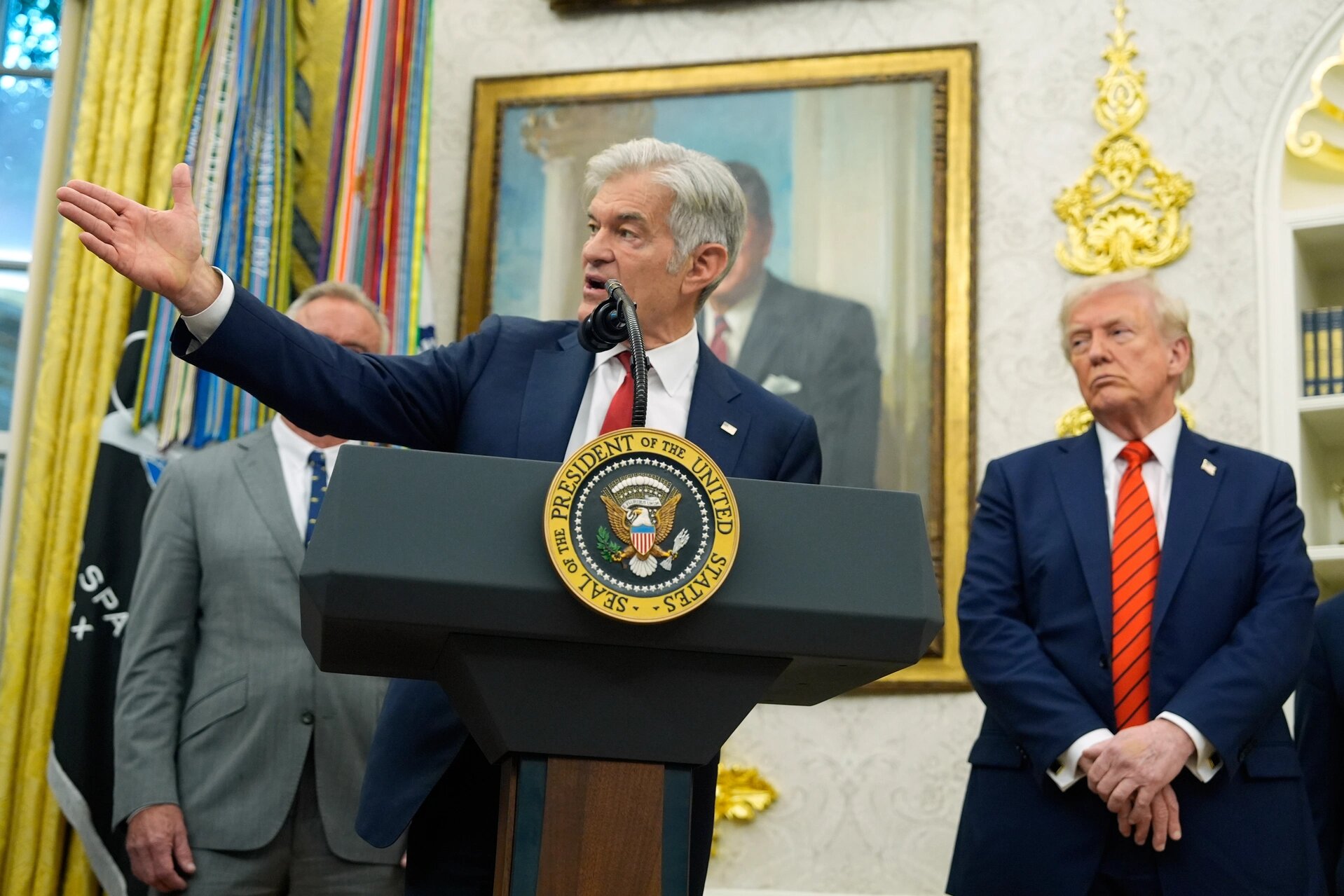Senior Trump administration health officials have been meeting to discuss how to respond to the year-end ACA subsidy expiration.

President Donald Trump’s Domestic Policy Council and senior health officials have been meeting privately for preliminary conversations on how to address the expiration of health insurance tax credits, according to a White House official and another person familiar with the talks.
Conversations about a White House alternative to Affordable Care Act subsidies, which will expire at year’s end, are in the “early ideation phase,” said a third person familiar with the talks. Like others, these people were granted anonymity to discuss private conversations. Options that administration officials have publicly teased in recent days include giving money directly to Americans to cover health expenses and subsidizing out-of-pocket costs for low-income people enrolled in the ACA.
Centers for Medicare and Medicaid Services Administrator Dr. Mehmet Oz said Monday that he’d spent “a good part of the weekend with the White House” working on a plan to replace ACA subsidies with a new policy.
“We have lots of great ideas,” Oz said on Fox News on Monday. “But I don’t want to show our cards. As the president often says, why would I telegraph to you what we are going to do?”
The push to address rising health care costs comes as Republicans stare down a promised December vote in the Senate on whether to extend enhanced Obamacare subsidies. In their absence, Americans are expected to face an average 114 percent increase in insurance costs in 2026, according to the nonpartisan health research group KFF.
The end of the shutdown — during which Democrats demanded a vote to extend the subsidies — has only amplified pressure to find a solution.
“The White House and HHS have had an increasing number of discussions on this as the shutdown came to its end,” the first person familiar with the talks said, adding that such conversations happened “occasionally” at the start of the shutdown and “frequently” toward its end.
“It’s all eyes on the midterms. If it makes sense for the midterms, then it’s moving,” the person said.
The acute political challenge brewing for the White House has echoes of the 2018 midterms, when Democrats successfully capitalized on the unpopularity of GOP efforts to repeal and replace Obamacare. White House officials and Republican lawmakers are cognizant of this vulnerability, and are looking to coalesce around a plan for the future of the health care system.
“I think the White House understands one of the sub issues of 2018 was that the Democrats used against the Republicans was that we were going to take away their Obamacare. That’s a nonstarter now,” said a person close to the White House. “Now you can’t get rid of it. What you’re wanting to try to do is fix it.”
Trump has repeatedly suggested that he wants to repair Obamacare but hasn’t publicly ruled out a straightforward extension of the ACA subsidies. He hasn’t taken a firm position as the administration sorts through policy proposals, a senior White House official said.
Republicans in Congress have put forward different versions of redirecting the Affordable Care Act subsidy money into federally funded accounts for Americans. Some Republicans support depositing funds into Health Savings Accounts, which can be used more broadly on expenses and roll over year to year, while others would opt for Flexible Savings Accounts, which expire at the end of the year and are narrower.
Trump hasn’t endorsed any of the specific options swirling around the Hill but has broadly backed the idea of putting money in accounts for Americans to use toward health care costs.
“We want a health care system where we pay the money to the people instead of the insurance companies and I tell you, we’re going to be working on that very hard over the next short period of time — where the people get the money,” Trump said in the Oval Office on Monday.
Other options include giving federal dollars to insurance companies to reduce cost sharing, like deductibles and copays. The White House supported this policy during negotiations over the megabill earlier this year, but it was ultimately not included in the legislation.
“That is something we still want to achieve,” White House deputy chief of staff James Blair said on Fox News on Monday.
Officials are also looking into reducing more prescription drug prices. The White House has already convinced a handful of large pharmaceutical companies to voluntarily reduce prices.
Trump “is obsessed with negotiating these good deals on behalf of the American people to bring down pharmaceutical costs and drug costs for Americans, and he has done so on a number of fronts,” White House press secretary Karoline Leavitt said Wednesday.
